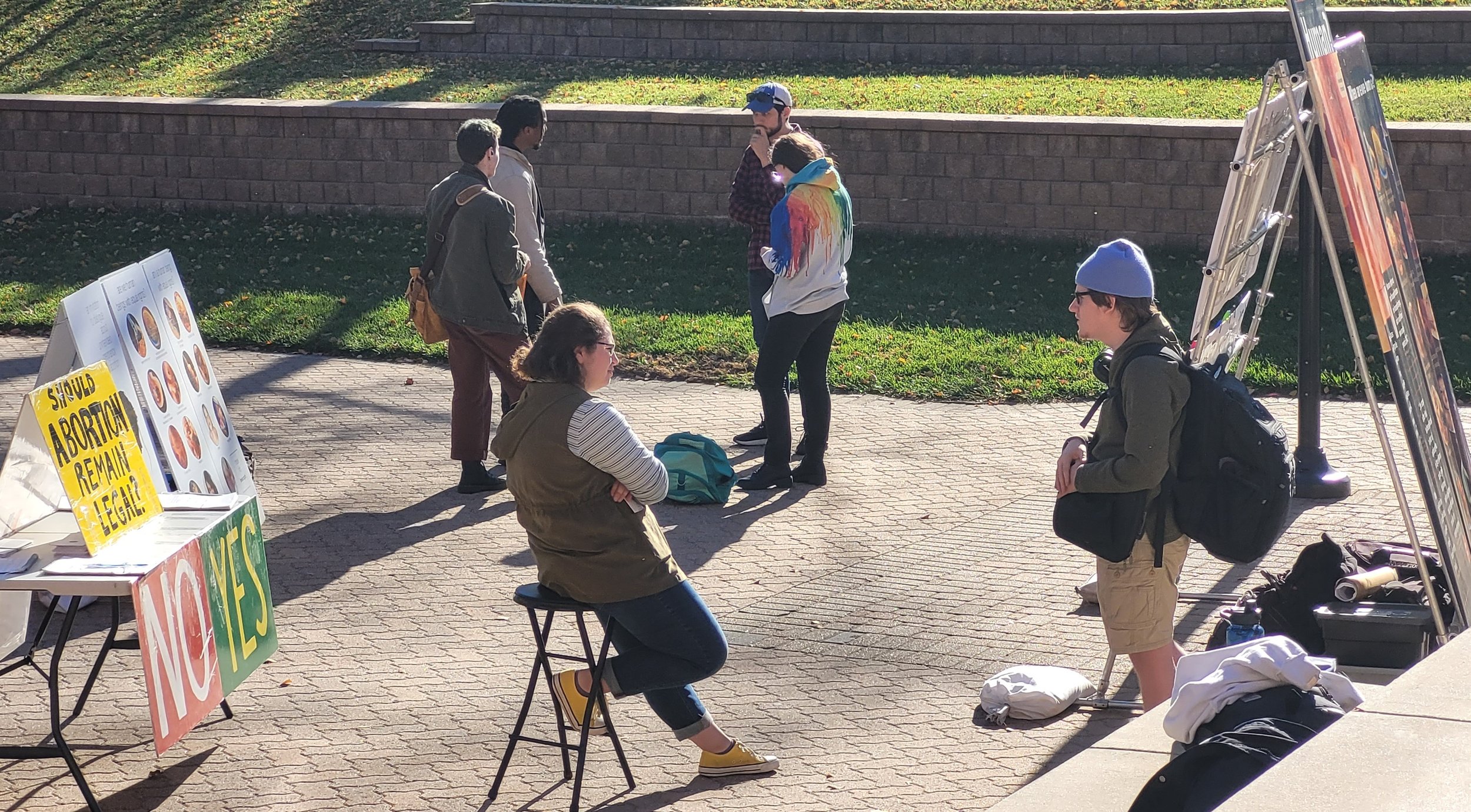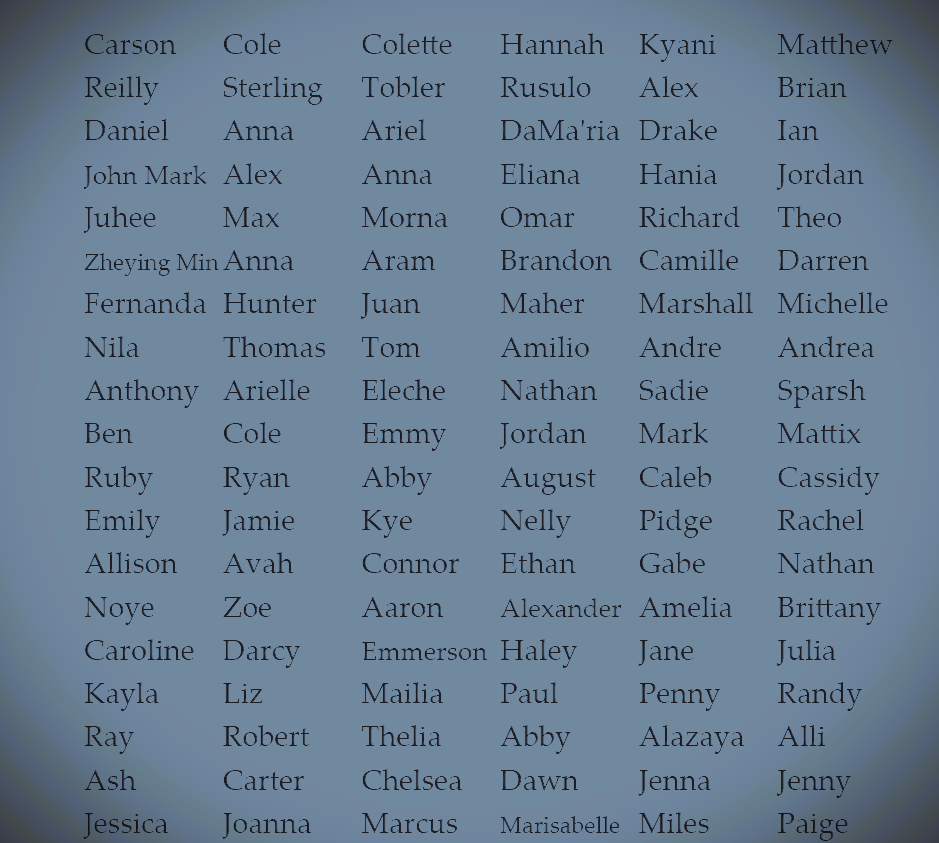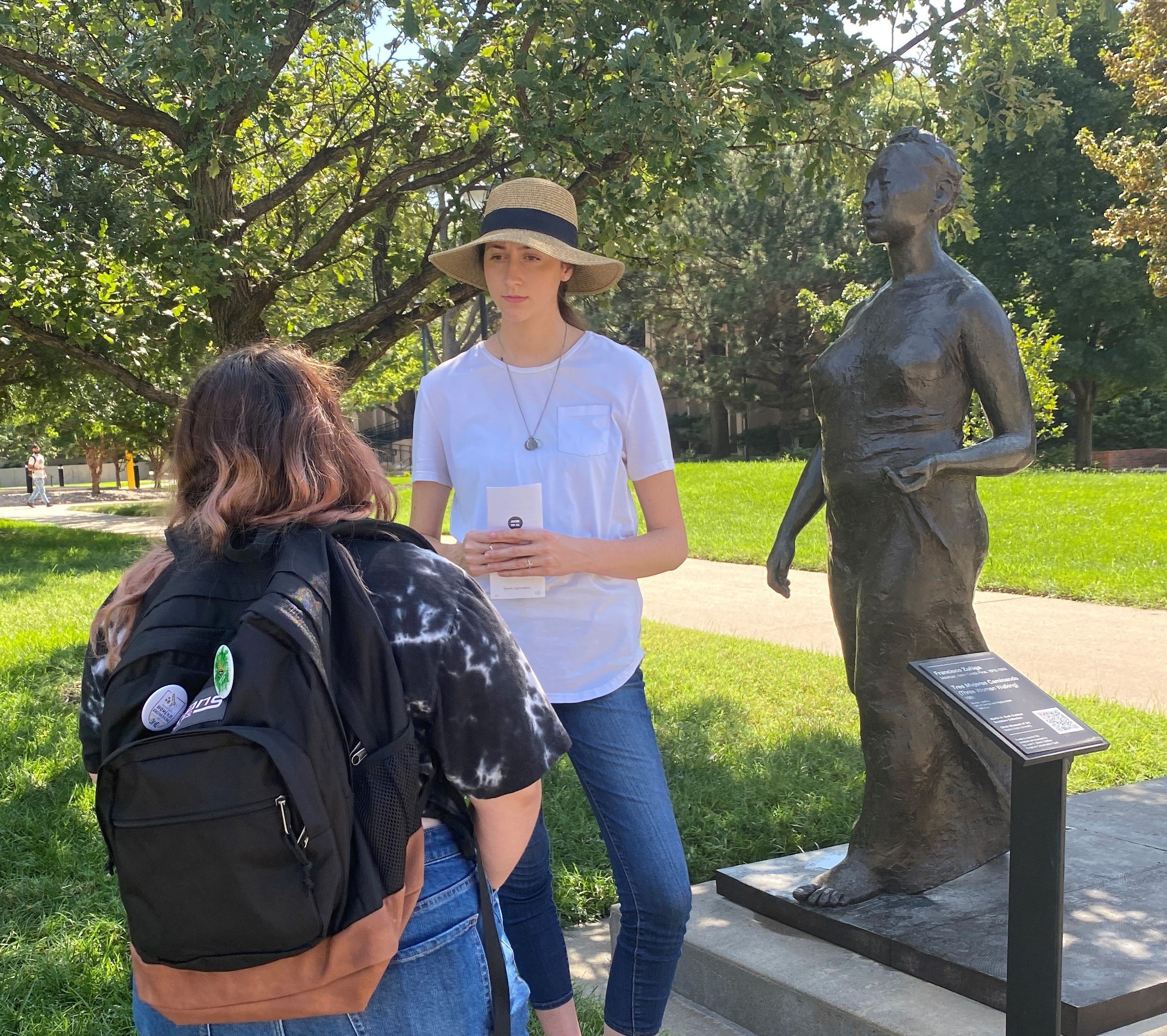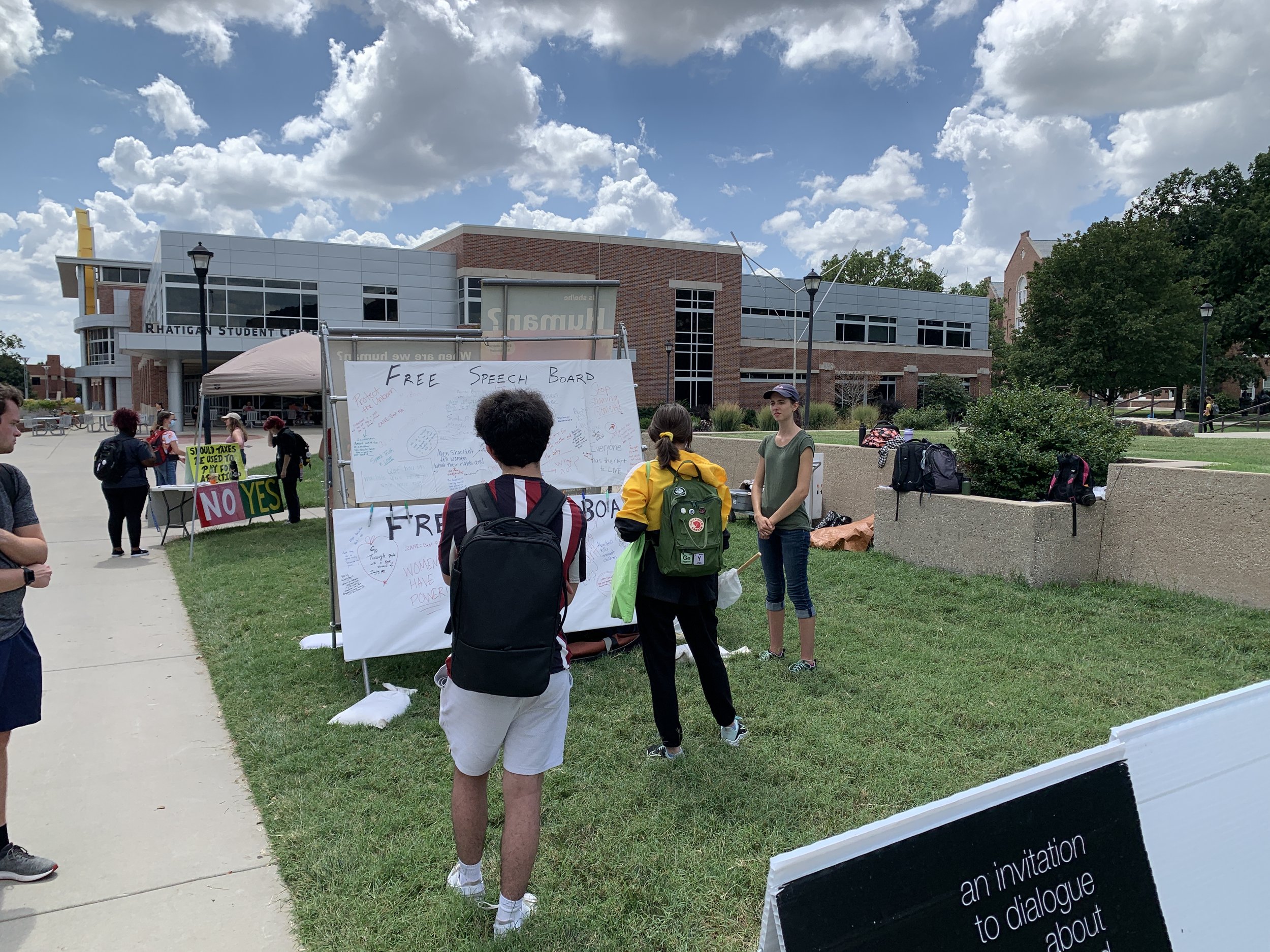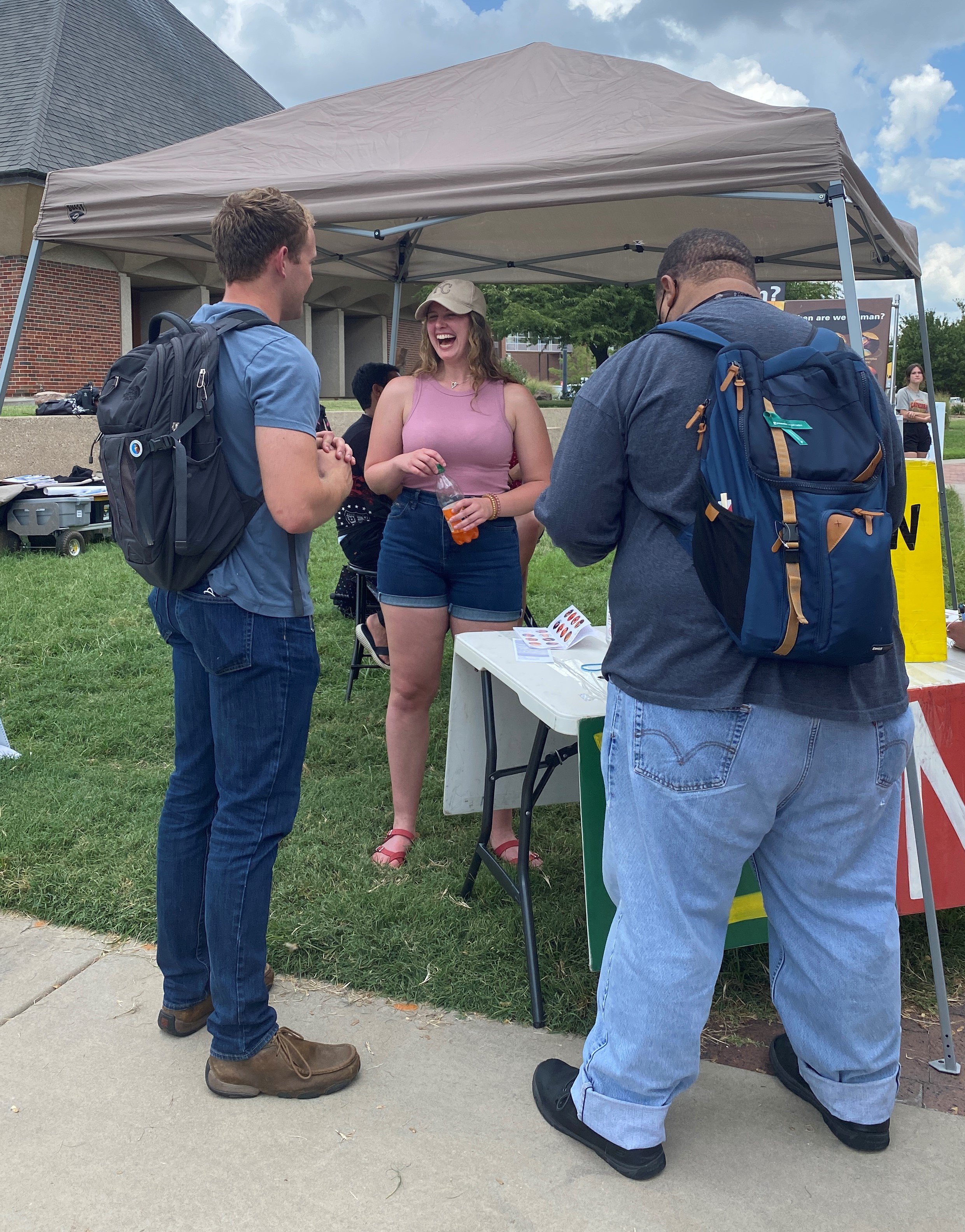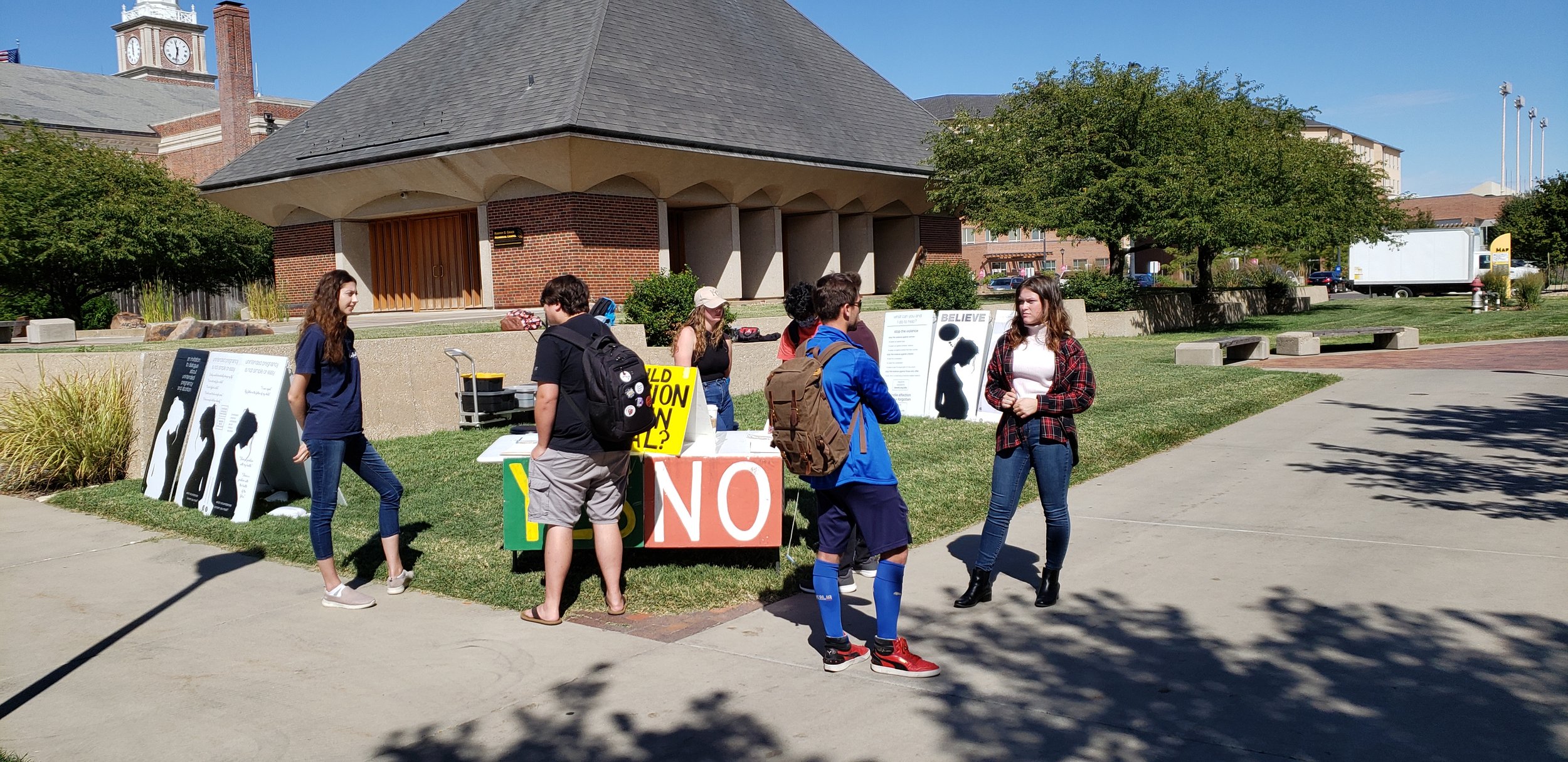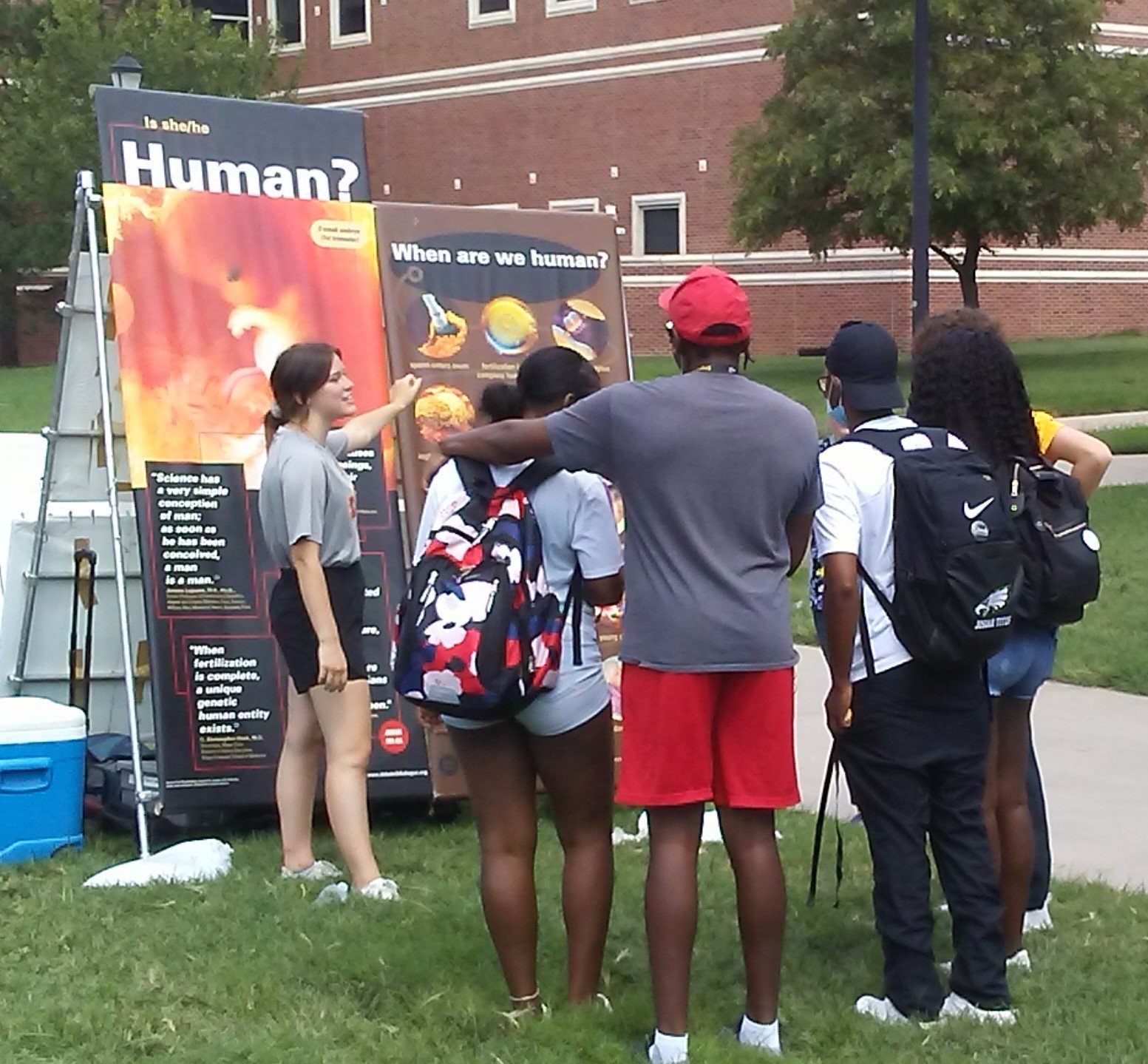Impact Report, October 2021
At JFA, our internships are an expression of our passion for nurturing young leaders, helping them create conversations that change hearts and minds and helping them learn to train others. In all of these activities, we emphasize dependence on God to bring the results He wishes to bring through our efforts.
In our Impact Report last month, interns Rose and Bella shared stories of conversations they had during August and September outreach events at Wichita State University.
In this Impact Report, interns Andrea and Kristina share a window into how this process of creating conversations has affected them personally, including deepening their trust in God at every moment. As you endeavor to make a difference in the lives of those God puts in your path, I hope these insights from Andrea and Kristina will also encourage you to trust God throughout each interaction.
Some of JFA’s interns come to us with very little conversation experience, just like many of our training participants. Because we place conversations and outreach front and center in the internship, interns quickly identify with our training participants’ normal fears and uncertainties, but our interns also gain insights they can share out of their personal experience with people they will be training. Interns Andrea and Kristina recently shared some of those insights:
Andrea Thenhaus: One of the most valuable skills I have learned is how to listen with an open heart yet also be able to share the truth in a conversation. I have gained a greater understanding of how to meet people in whatever circumstances they may be… I appreciate the mentoring that JFA provides. When out on campus I had a JFA member evaluate each conversation I had, which was especially helpful… I have been stretched in the Lord and grown in boldness. I have learned the importance of relying on the Lord to direct my conversations. Every conversation is an invitation to let the Holy Spirit step in and accomplish His work through me. I am thankful that the Lord is faithful to give me wisdom.
Kristina Massa: The scariest part about abortion dialogue is initiating the first conversation. Even after training and practice with Justice For All, the fears that accompanied asking strangers what they think about abortion continued to billow in my mind: What if they share an argument for which I’m not prepared? What if they yell at me? What if this is an emotional topic for them, and my question stirs up those emotions? The list of fears and lies the devil plants in our minds to prevent us from taking the first step can feel like it goes on forever, but the army of graces that God affords us to overcome those fears puts that list to shame.
With the support of the JFA team, I took a leap of faith in my first conversation at outreach. A young woman approached us to sign our poll which asked, “Should Abortion Remain Legal?” I initiated a conversation by asking her questions about her view. I was nervous, my demeanor was shaky, and I stumbled on my words. Any snarky person could have easily used my weakness to walk on me. To my surprise, the woman (who identified as pro-choice) was extremely gracious, and we found ourselves in a productive dialogue filled with lots of common ground. God used the woman’s temperament to compensate for what I was lacking. We may not have all of the right words or confidence we want in every conversation, but time and time again, God has demonstrated to me that He will provide the safe ground to land on as long as we take our leap of faith.




